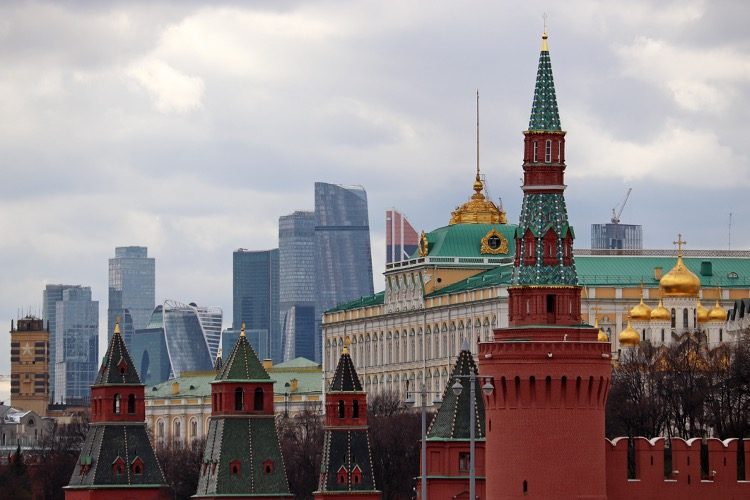
The Russian crackdown on the LGBT movement has officially begun, marking a major shift away from what was once believed to be a global trend toward acceptance of homosexuality, transgenderism, and other forms of sexual deviancy.
As the Associated Press reported, Russian police conducted raids of gay clubs and bars in the capital city of Moscow on Friday. The operation came less than two days after the Russian Supreme Court ruled that the “global LGBT movement” is an “extremist group.”
Establishments targeted by Russian authorities included a male sauna, a nightclub, and a bar known to host LGBT parties. During the raids, police examined and took photographs of attendees’ documents. Witnesses told the press that managers tipped off patrons before security forces arrived.
The vague and broad definitions of the lawsuit that culminated in the banning of the LGBT movement allows the government considerable leeway in taking action against a wide variety of groups or individuals deemed to be involved in some way.
For example, human-rights lawyer Max Olenichev, who works with LGBT clients, told AP that the ruling prohibits organized activity advocacy on the LGBT movement’s behalf.
“In practice, it could happen that the Russian authorities, with this court ruling in hand, will enforce [the ruling] against LGBTQ+ initiatives that work in Russia, considering them a part of this civic movement,” said Olenichev.
The outlet further reported:
Before the ruling, leading Russian human rights groups had filed a document with the Supreme Court that called the Justice Ministry lawsuit discriminatory and a violation of Russia’s constitution. Some LGBTQ+ activists tried to become a party in the case but were rebuffed by the court.
Russian authorities reject accusations of LGBTQ+ discrimination. Earlier this month, Russian media quoted Deputy Justice Minister Andrei Loginov as saying that “the rights of LGBT people in Russia are protected” legally. He was presenting a report on human rights in Russia to the U.N. Human Rights Council in Geneva, arguing that “restraining public demonstration of nontraditional sexual relationships or preferences is not a form of censure for them.”
The Supreme Court case is classified and it remains unclear how LGBTQ+ activists and symbols will be restricted.
In Russia, lawmakers are now advancing landmark legislation that would prohibit the adoption of the country’s children by citizens of counties that allow “gender reassignment” surgery — a measure its proponents say would protect children and ensure they are raised by normal families.
Back in July, Russian President Vladimir Putin signed a ban on gender reassignment; under the new law, drugs and surgical procedures associated with gender reassignment may only be used to treat reproductive organ deformities in children, and decisions for such cases are made by clinics with a special license from the Russian Health Ministry.
These developments are the most recent in a decade-long anti-LGBT effort by the Russian government; in 2013, the country banned “LGBT propaganda” directed at minors, a ban strengthened last December with heavy fines for those who promote “non-traditional sexual relations,” including pedophilia and transgenderism. The fines apply whether one is promoting these sexualities to minors or to adults. Russia went on to ban same-sex marriage outright in 2020.
Olga Baranova, director of the Moscow Community Center for LGBTQ+ Initiatives, told AP that it’s likely many LGBT Russians will consider leaving the country.
“It is clear for us that they’re once again making us out as a domestic enemy to shift the focus from all the other problems that are in abundance in Russia,” said Baranova.
Despite the outcry from LGBT activists and the mainstream media, polling suggests measures to restrict LGBT activity in Russia are popular with the local population.
In August, a survey published by independent sociological research company Russian Field, which for years has been documenting the overall attitude of the Russian people toward the LGBT community, found that the last decade has seen a notable rise in the number of Russians who believe the “rights” of LGBT individuals should be restricted. Specifically, 62 percent of respondents this year expressed support for limiting “gay rights” and 55 percent supported restricting “transgender rights.”
By contrast, per previous polling, only 42 percent of Russians in 2021 opposed “gay rights,” while that number was still lower — down at only 19 percent — in 2013.
It’s a noteworthy correlation that pro-LGBT attitudes in Russia have gone down so significantly since 2013 — the very year, as noted above, that the government banned LGBT propaganda aimed at minors.
An argument could be made that the law has had its intended effects; that is, banning LGBT propaganda among the youth has led to more Russians being against it.
This suggests that much of the modern-day support for LGBT (particularly among young people) in nations across the West, including the United States, is not a natural occurrence as the LGBT movement would like people to believe, but rather the result of continued pro-LGBT propaganda in entertainment, the press, schools, and social media.
The decline of LGBT culture in Russia demonstrates that policies to cement traditional biblical values truly do shape public morality in the long-term.




